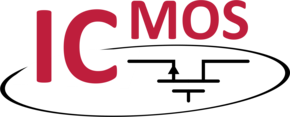
While it is said that the progress of conventional computers is reaching its limits, it is essential to be able to respond to the explosion of information processing demands. If we want quantum computing to rapidly solve our numerous and complex social problems, we need a fault-tolerant universal quantum computer that can perform precise computation while correcting quantum errors.
The institute of CMOS design is participating in several state-funded research projects aiming to develop various quantum computing systems. The main focus of our work is to design integrated systems based on BiCMOS and CMOS technologies capable of operating at cryogenic temperatures.